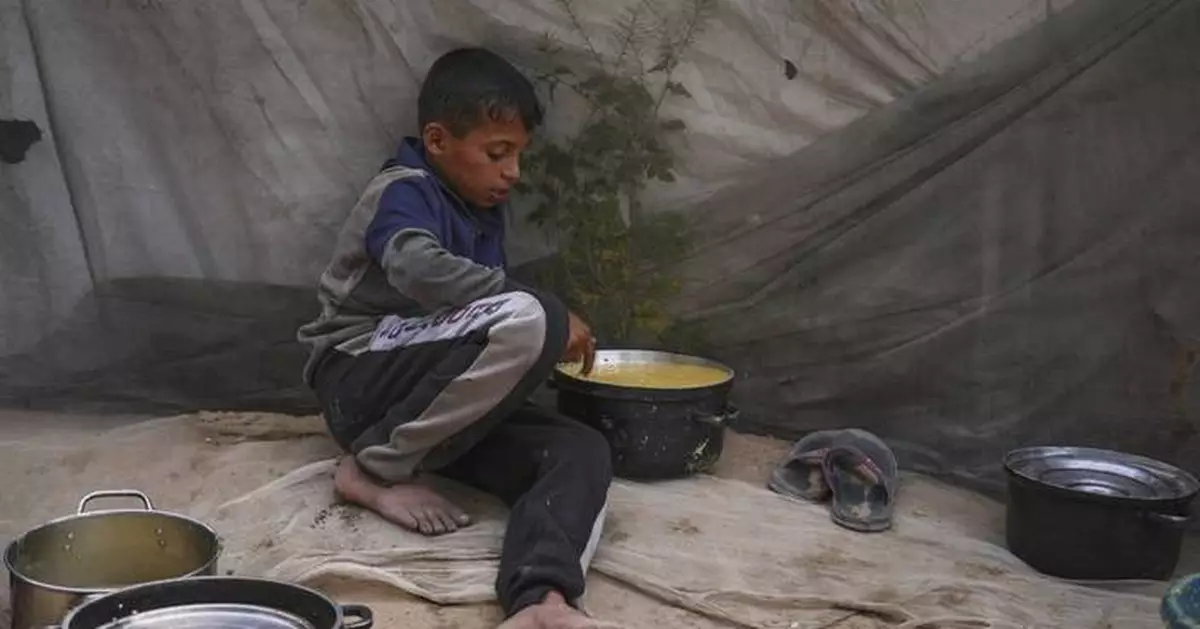DEIR AL-BALAH, Gaza Strip (AP) — Israeli strikes on the Gaza Strip overnight into Monday killed at least 27 Palestinians, according to local health officials. There was no immediate comment from the Israeli military.
Israel has carried out daily strikes on Gaza since ending its ceasefire with Hamas last month. It has cut off the territory's 2 million Palestinians from all imports, including food and medicine, since the beginning of March in what it says is an attempt to pressure the militant group to release hostages.
Click to Gallery
Palestinians look at the damage after an Israeli army airstrike in Beit Lahia, northern Gaza Strip, Monday, April 28, 2025. (AP Photo/Jehad Alshrafi)
Palestinians look at the damage after an Israeli army airstrike in Beit Lahia, northern Gaza Strip, Monday, April 28, 2025. (AP Photo/Jehad Alshrafi)
Palestinians look at the damage after an Israeli army airstrike in Beit Lahia, northern Gaza Strip, Monday, April 28, 2025. (AP Photo/Jehad Alshrafi)
Palestinians look at the damage after an Israeli army airstrike in Beit Lahia, northern Gaza Strip, Monday, April 28, 2025. (AP Photo/Jehad Alshrafi)
Relatives mourn over the bodies of several members of the Abu Mahdi family, killed in an Israeli army airstrike, during their funeral at the Indonesian hospital in Beit Lahia, northern Gaza Strip, Monday, April 28, 2025. (AP Photo/Jehad Alshrafi)
Palestinians look at the damage after an Israeli army airstrike in Beit Lahia, northern Gaza Strip, Monday, April 28, 2025. (AP Photo/Jehad Alshrafi)
Mohammad Abu Zeid, 12, tastes the food prepared for a meal in his family tent in Muwasi, on the outskirts of Khan Younis in the southern Gaza Strip, Thursday, April 24, 2025. (AP Photo/Abdel Kareem Hana)
The daily bombardment and widespread hunger is taking a heavy toll on Gaza's most vulnerable residents, including pregnant women and children. The United Nations' highest court began holding hearings on Monday into Israel's obligation to facilitate humanitarian aid to the territories it occupies.
Israel says the International Court of Justice is biased against it. It says enough aid entered during the ceasefire to sustain the population and accuses Hamas of siphoning it off.
Humanitarian workers say supplies are running desperately low, with most people eating one meal or less a day. They say the U.N. closely monitors aid distribution and deny any significant diversion.
An airstrike hit a home in Beit Lahiya, killing 10 people, including a Palestinian prisoner, Abdel-Fattah Abu Mahadi, who had been released as part of the ceasefire. His wife, two of their children and a grandchild were also killed, according to the Indonesian Hospital, which received the bodies.
Another strike hit a home in Gaza City, killing seven people, including two women, according to the Gaza Health Ministry's emergency service. Two other people were wounded.
Late Sunday, a strike hit a home in the southern city of Khan Younis, killing at least 10 people, including five siblings as young as 4 years old, according to the Health Ministry. Two other children were killed along with their parents, according to Nasser Hospital, which received the bodies.
Israel says it makes every effort to avoid harming civilians and blames Hamas for their deaths because the militants operate in densely populated areas. Palestinians say nowhere in blockaded Gaza is safe.
The war began when Hamas-led militants attacked southern Israel on Oct. 7, 2023, killing some 1,200 people, mostly civilians, and abducting 251. Hamas is still holding 59 hostages, 24 of whom are believed to be alive, after most of the rest were released in ceasefire agreements or other deals.
Israel's retaliatory offensive has killed over 52,000 Palestinians, mostly women and children, according to the Health Ministry, which does not say how many of the dead were fighters or civilians. Israel's bombardment and ground operations have destroyed vast areas of Gaza and left most of its population homeless.
The Health Ministry says 2,151 people, including 732 children, have been killed since Israel shattered the truce on March 18.
Israeli Prime Minister Benjamin Netanyahu has vowed to continue the offensive until all the hostages are returned and Hamas is either destroyed or agrees to disarm and leave the territory. He says Israel will then implement U.S. President Donald Trump's proposal to resettle much of Gaza's population in other countries through what the Israeli leader refers to as "voluntary emigration."
Palestinians say the plan would amount to forcible expulsion from their homeland after Israel's offensive left much of Gaza uninhabitable. Human rights experts say it would likely violate international law.
Hamas has said it will only release the remaining hostages in return for more Palestinian prisoners, a lasting ceasefire and a full Israeli withdrawal from Gaza, as called for in the ceasefire that Israel ended.
Magdy reported from Cairo.
Follow AP’s war coverage at https://apnews.com/hub/israel-hamas-war
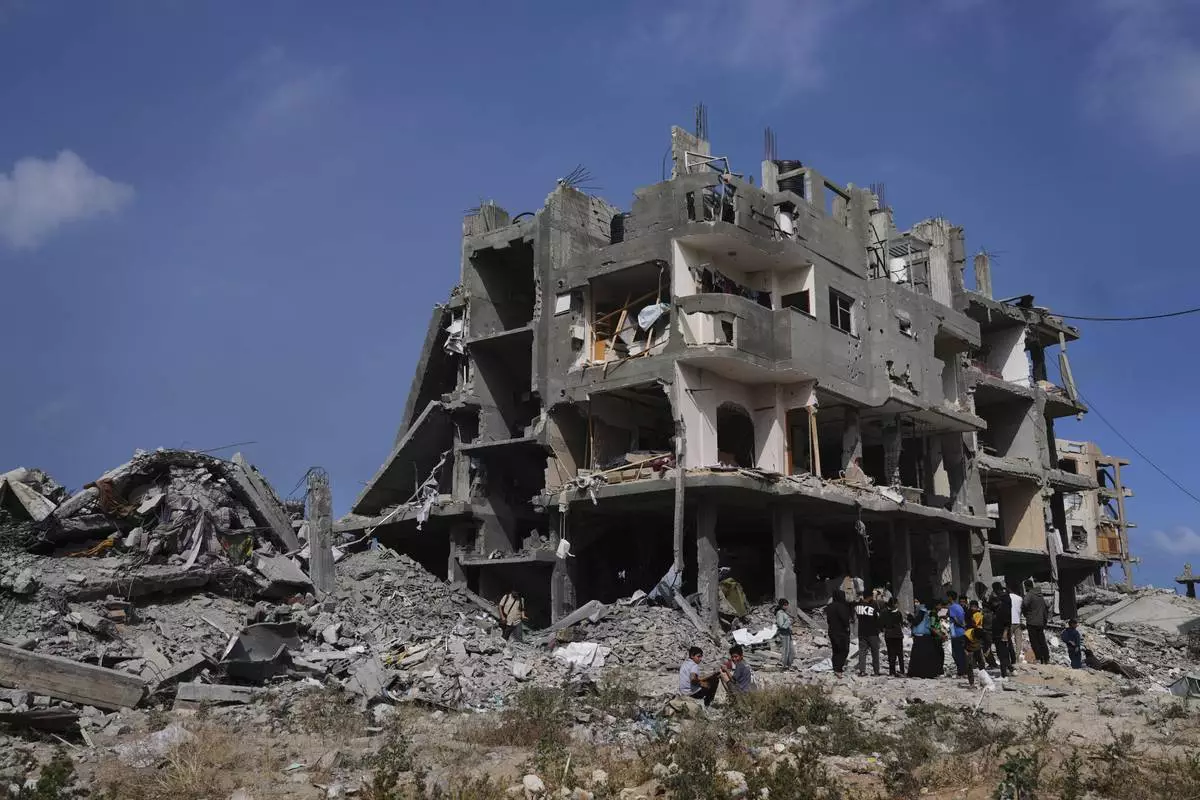
Palestinians look at the damage after an Israeli army airstrike in Beit Lahia, northern Gaza Strip, Monday, April 28, 2025. (AP Photo/Jehad Alshrafi)
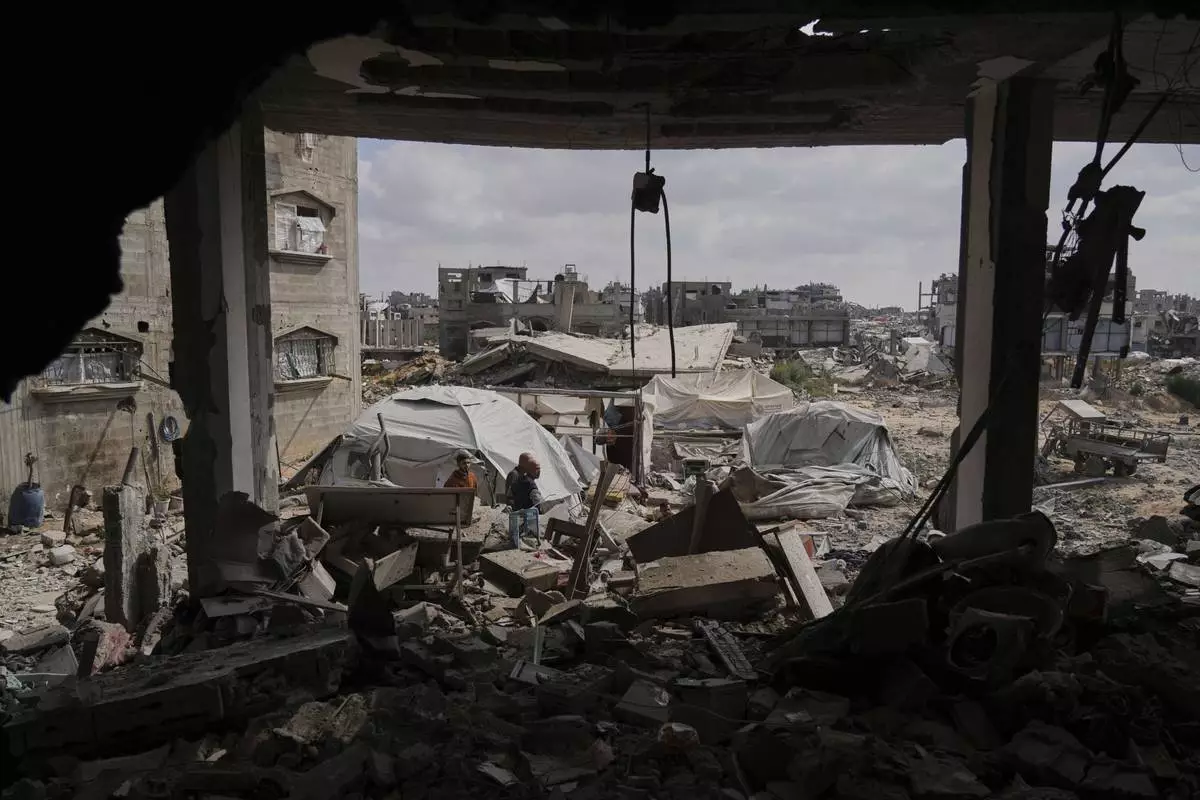
Palestinians look at the damage after an Israeli army airstrike in Beit Lahia, northern Gaza Strip, Monday, April 28, 2025. (AP Photo/Jehad Alshrafi)
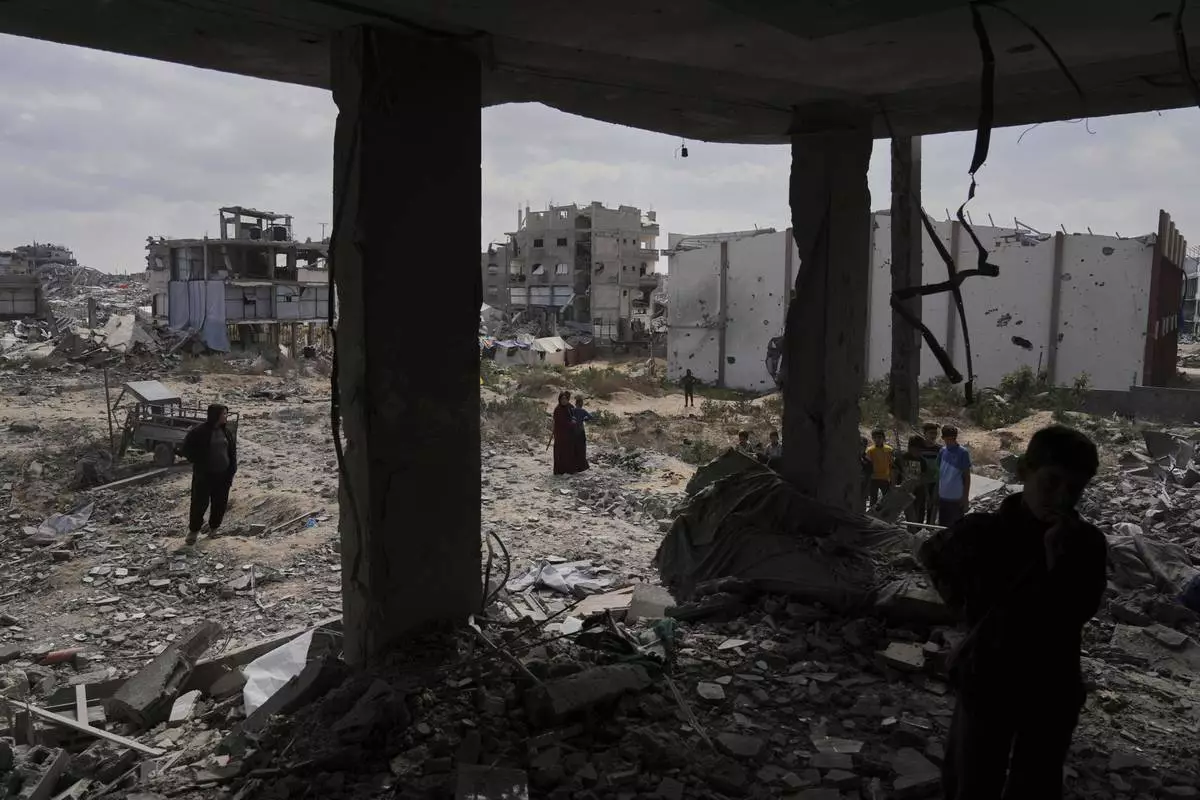
Palestinians look at the damage after an Israeli army airstrike in Beit Lahia, northern Gaza Strip, Monday, April 28, 2025. (AP Photo/Jehad Alshrafi)
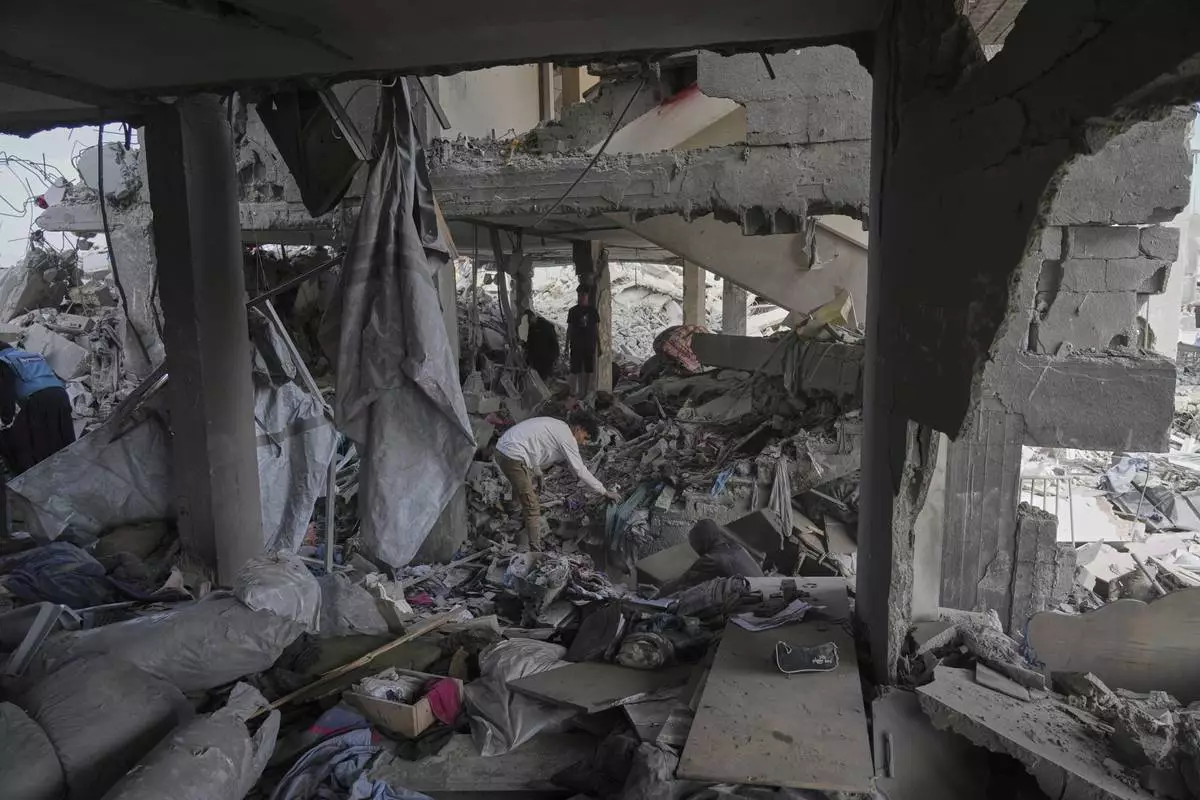
Palestinians look at the damage after an Israeli army airstrike in Beit Lahia, northern Gaza Strip, Monday, April 28, 2025. (AP Photo/Jehad Alshrafi)
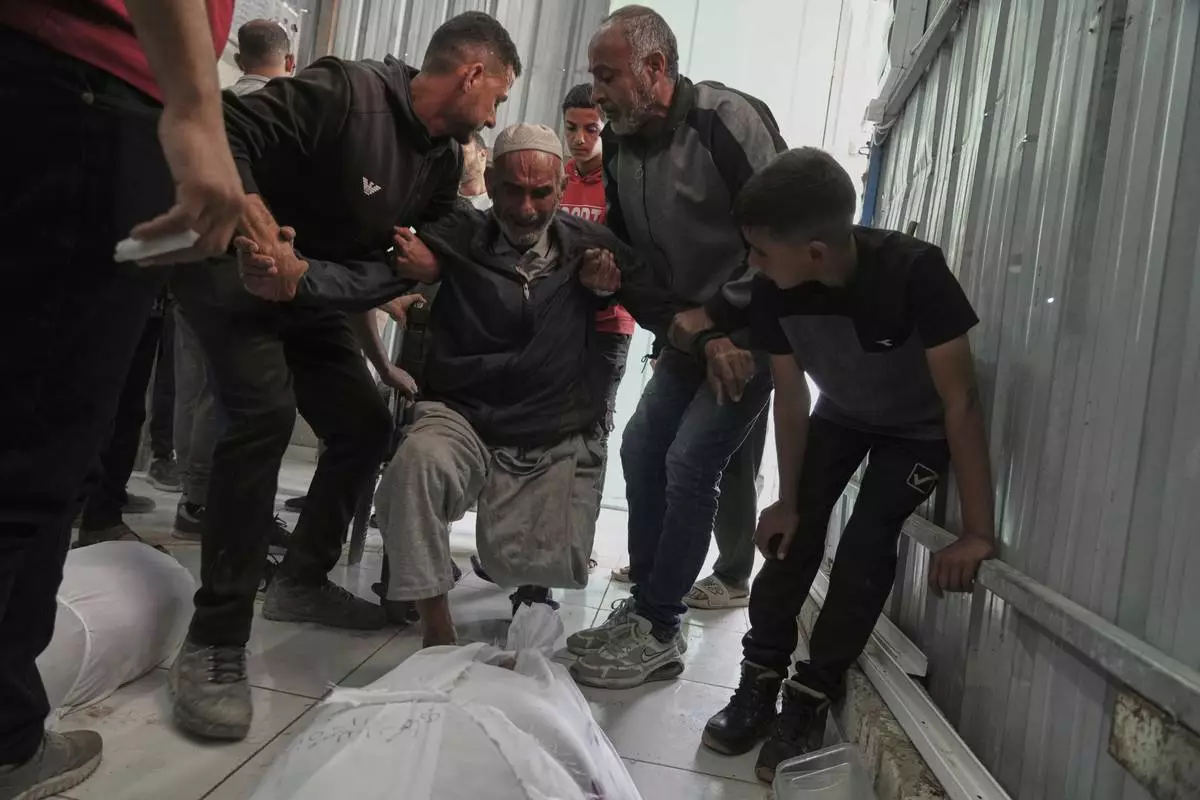
Relatives mourn over the bodies of several members of the Abu Mahdi family, killed in an Israeli army airstrike, during their funeral at the Indonesian hospital in Beit Lahia, northern Gaza Strip, Monday, April 28, 2025. (AP Photo/Jehad Alshrafi)
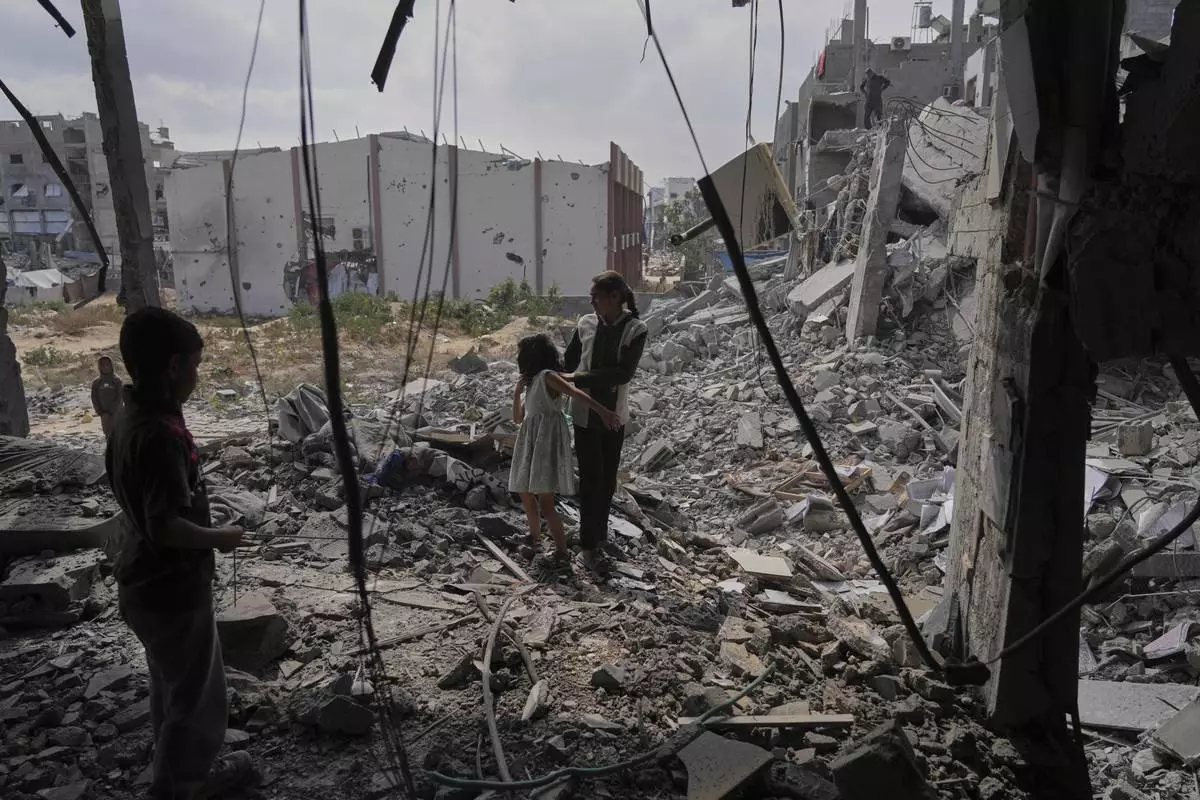
Palestinians look at the damage after an Israeli army airstrike in Beit Lahia, northern Gaza Strip, Monday, April 28, 2025. (AP Photo/Jehad Alshrafi)
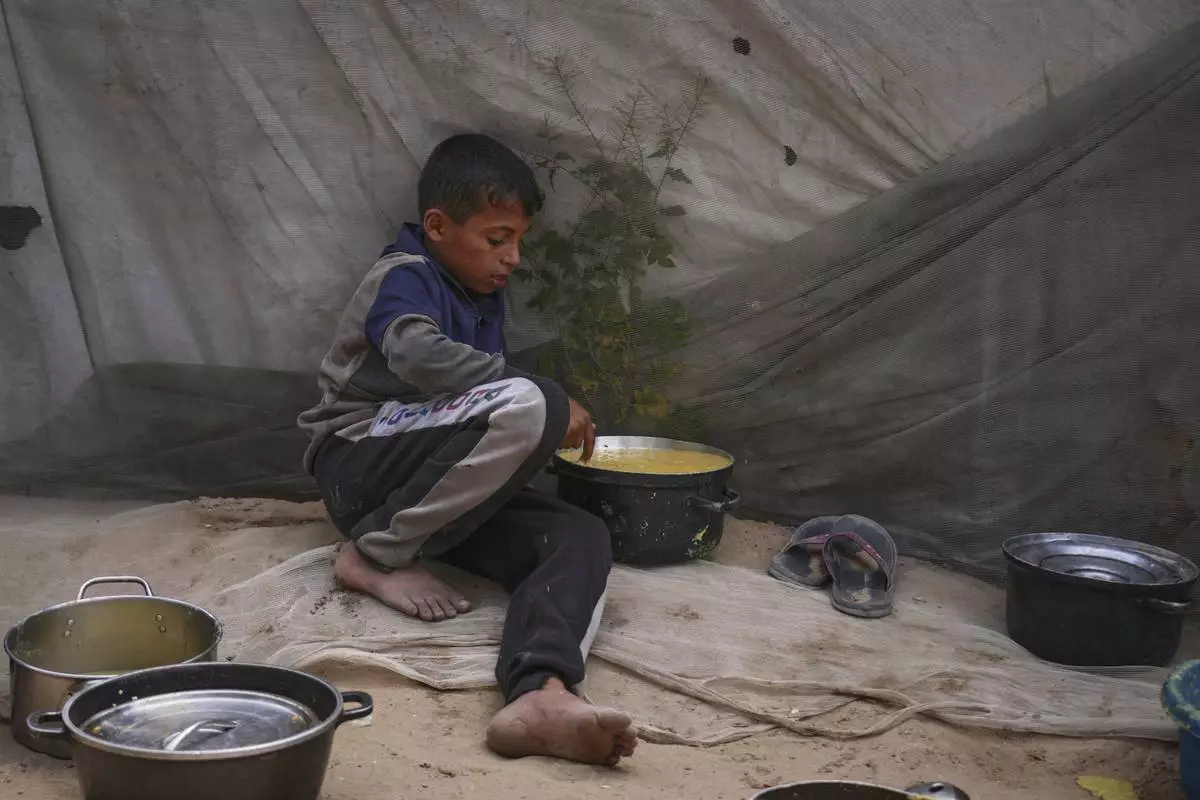
Mohammad Abu Zeid, 12, tastes the food prepared for a meal in his family tent in Muwasi, on the outskirts of Khan Younis in the southern Gaza Strip, Thursday, April 24, 2025. (AP Photo/Abdel Kareem Hana)
DUBAI, United Arab Emirates (AP) — U.S. President Donald Trump said Iran wants to negotiate with Washington after his threat to strike the Islamic Republic over its bloody crackdown on protesters, a move coming as activists said Monday the death toll in the nationwide demonstrations rose to at least 544.
Iran had no immediate reaction to the news, which came after the foreign minister of Oman — long an interlocutor between Washington and Tehran — traveled to Iran this weekend. It also remains unclear just what Iran could promise, particularly as Trump has set strict demands over its nuclear program and its ballistic missile arsenal, which Tehran insists is crucial for its national defense.
Meanwhile Monday, Iran called for pro-government demonstrators to head to the streets in support of the theocracy, a show of force after days of protests directly challenging the rule of 86-year-old Supreme Leader Ayatollah Ali Khamenei. Iranian state television aired chants from the crowd, who shouted “Death to America!” and “Death to Israel!”
Trump and his national security team have been weighing a range of potential responses against Iran including cyberattacks and direct strikes by the U.S. or Israel, according to two people familiar with internal White House discussions who were not authorized to comment publicly and spoke on condition of anonymity.
“The military is looking at it, and we’re looking at some very strong options,” Trump told reporters on Air Force One on Sunday night. Asked about Iran’s threats of retaliation, he said: “If they do that, we will hit them at levels that they’ve never been hit before.”
Trump said that his administration was in talks to set up a meeting with Tehran, but cautioned that he may have to act first as reports of the death toll in Iran mount and the government continues to arrest protesters.
“I think they’re tired of being beat up by the United States,” Trump said. “Iran wants to negotiate.”
He added: “The meeting is being set up, but we may have to act because of what’s happening before the meeting. But a meeting is being set up. Iran called, they want to negotiate.”
Iran through country's parliamentary speaker warned Sunday that the U.S. military and Israel would be “legitimate targets” if America uses force to protect demonstrators.
More than 10,600 people also have been detained over the two weeks of protests, said the U.S.-based Human Rights Activists News Agency, which has been accurate in previous unrest in recent years and gave the death toll. It relies on supporters in Iran crosschecking information. It said 496 of the dead were protesters and 48 were with security forces.
With the internet down in Iran and phone lines cut off, gauging the demonstrations from abroad has grown more difficult. The Associated Press has been unable to independently assess the toll. Iran’s government has not offered overall casualty figures.
Those abroad fear the information blackout is emboldening hard-liners within Iran’s security services to launch a bloody crackdown. Protesters flooded the streets in the country’s capital and its second-largest city on Saturday night into Sunday morning. Online videos purported to show more demonstrations Sunday night into Monday, with a Tehran official acknowledging them in state media.
In Tehran, a witness told the AP that the streets of the capital empty at the sunset call to prayers each night. By the Isha, or nighttime prayer, the streets are deserted.
Part of that stems from the fear of getting caught in the crackdown. Police sent the public a text message that warned: “Given the presence of terrorist groups and armed individuals in some gatherings last night and their plans to cause death, and the firm decision to not tolerate any appeasement and to deal decisively with the rioters, families are strongly advised to take care of their youth and teenagers.”
Another text, which claimed to come from the intelligence arm of the paramilitary Revolutionary Guard, also directly warned people not to take part in demonstrations.
“Dear parents, in view of the enemy’s plan to increase the level of naked violence and the decision to kill people, ... refrain from being on the streets and gathering in places involved in violence, and inform your children about the consequences of cooperating with terrorist mercenaries, which is an example of treason against the country,” the text warned.
The witness spoke to the AP on condition of anonymity due to the ongoing crackdown.
The demonstrations began Dec. 28 over the collapse of the Iranian rial currency, which trades at over 1.4 million to $1, as the country’s economy is squeezed by international sanctions in part levied over its nuclear program. The protests intensified and grew into calls directly challenging Iran’s theocracy.
Nikhinson reported from aboard Air Force One.
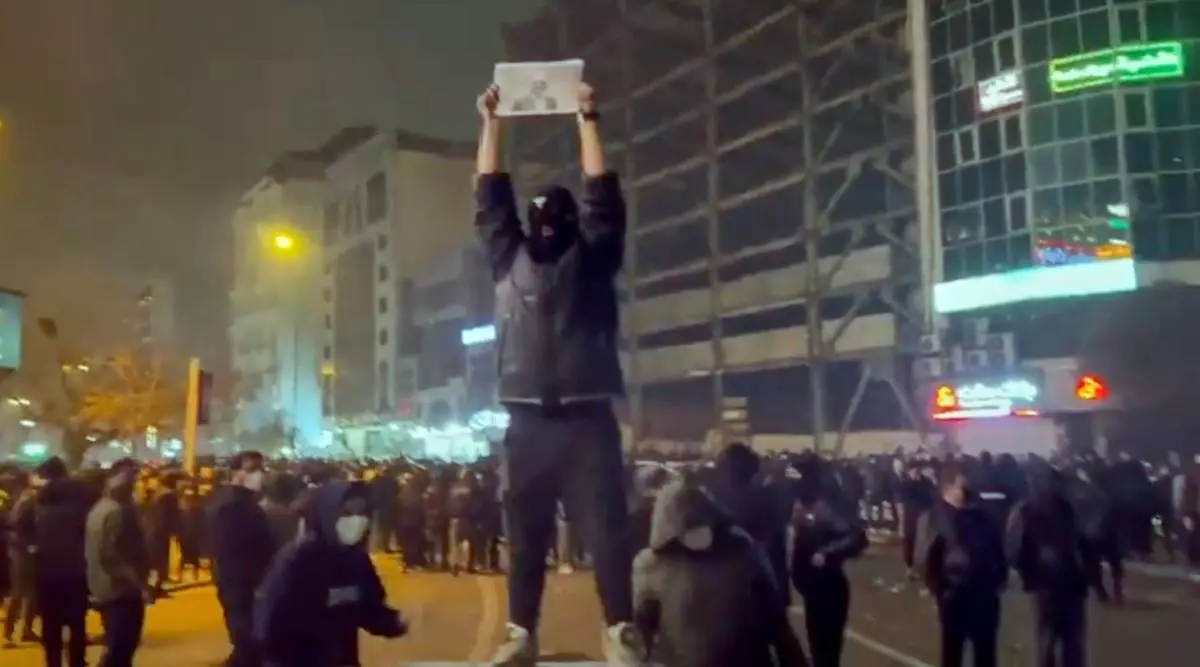
In this frame grab from video obtained by the AP outside Iran, a masked demonstrator holds a picture of Iran's Crown Prince Reza Pahlavi during a protest in Tehran, Iran, Friday, January. 9, 2026. (UGC via AP)
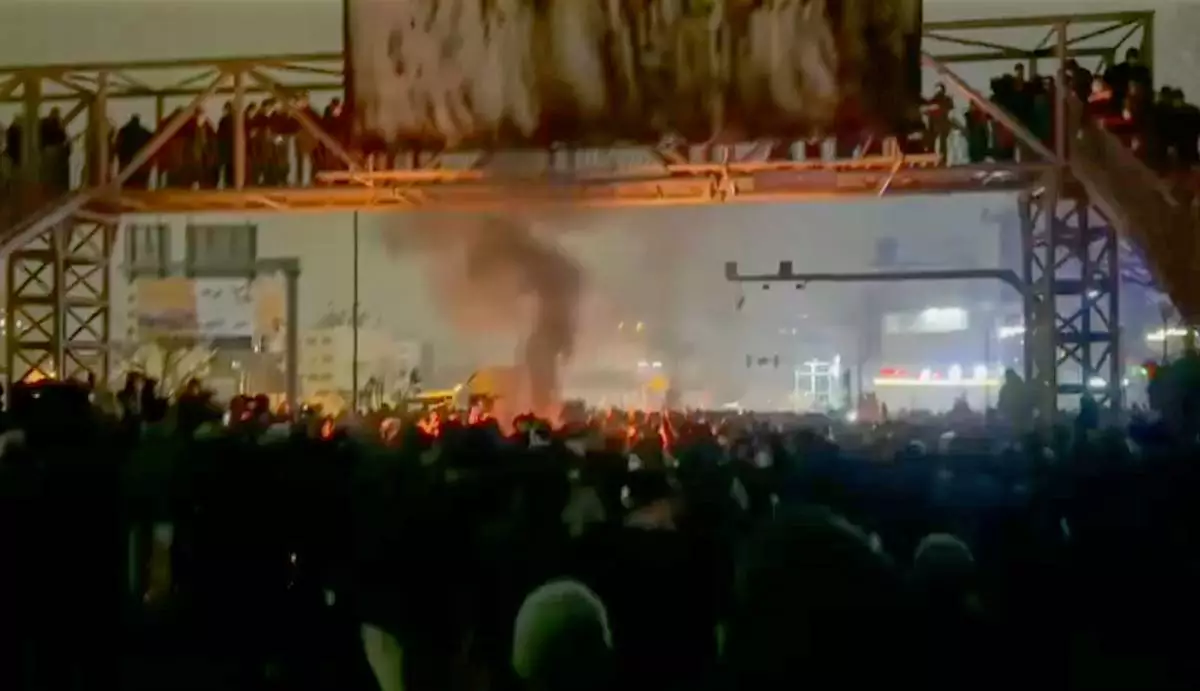
In this frame grab from footage circulating on social media from Iran shows protesters taking to the streets despite an intensifying crackdown as the Islamic Republic remains cut off from the rest of the world in Tehran, Iran, Friday, Jan. 9, 2026.(UGC via AP)
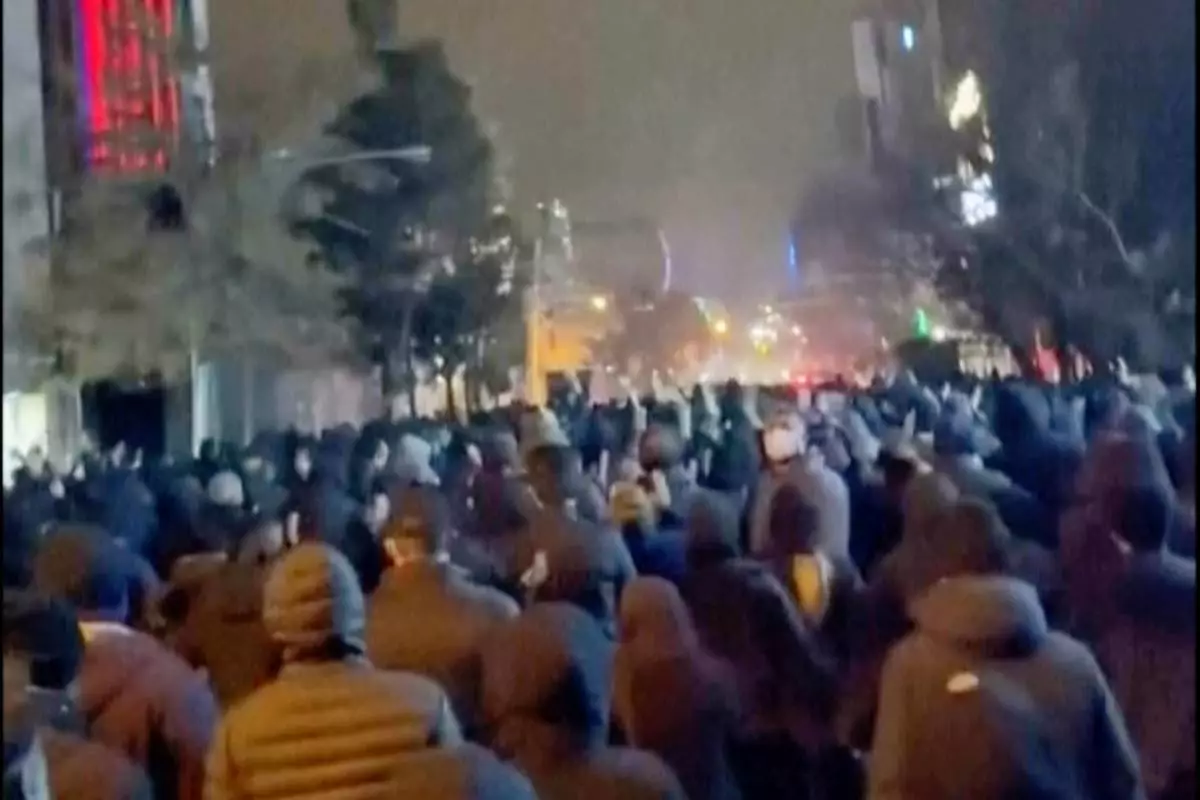
In this frame grab from footage circulating on social media from Iran showed protesters once again taking to the streets of Tehran despite an intensifying crackdown as the Islamic Republic remains cut off from the rest of the world in Tehran, Iran, Saturday Jan. 10, 2026. (UGC via AP)









